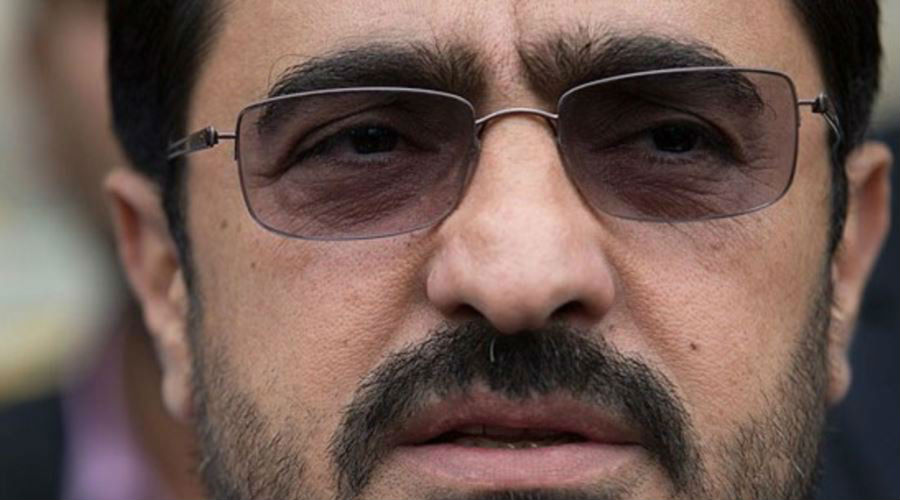The sentencing Saeed Mortazavi, the former chief prosecutor of Tehran, over charges of ordering the torture of prisoners in June 2009, to two years in prison has led to an escalation of conflicts between Iran’s political forces and opening up issues of human rights violations and rampant corruption in state institutions.
Of note, the sentence meted to Mortazavi came amid a recent exchange of accusations between former president Mahmoud Ahmadinejad and his political rivals from the conservative fundamentalists, namely Ali Larijani, the speaker of the Consultative Assembly (parliament), and his brother Sadeq Amoli Larijani, the head of the judiciary, two figures close to Supreme Leader Ali Khamenei. The scope of accusations also include foreign policy issues such as the nuclear program and international sanctions imposed before the nuclear deal was signed in mid-2015.
Multiple Considerations
The recent escalation of Mortazavi’s case on the political scene can be explained as follows:
Firstly, ex-president Ahmadinejad deliberately continued his attack on the Larijanis and sought to justify the expansion of international sanctions imposed on Iran over its nuclear program before the deal. He claimed that it was the stances that Ali Larijani took, when he was chief nuclear negotiator and Secretary of Supreme National Security Council, that led to the escalation of the sanctions. It was the same period when sharp disagreements arose between Larijani and Ahmadinejad that ultimately led to Larjani's removal from post as chief nuclear negotiator.
After corruption cases, that had happened during his presidency, were re-opened recently, Ahmadinejad claimed that Larijani failed to obey his instructions in dealing with questions raised by the International Atomic Energy Agency (IAEA) about Iran’s nuclear activities, and that this failure was the reason why the international sanctions were imposed by the UN Security Council, which led to serious consequences for the Iranian economy, including the collapse of its currency, rising inflation, unemployment and poverty rates.
Ahmadinejad also hinted that Larijani played a role in blocking a trilateral nuclear fuel swap deal reached between Iran, Turkey and Brazil in May 18, 2010 to settle the nuclear crisis. As per the agreement, Iran would export uranium enriched to 3.5% purity in exchange for uranium enriched to 20% purity for its research nuclear reactor in Tehran.
In his view, his political rivals’ sought to block the deal to prevent any political achievements concerning this issue in particular that would have tilt the political balances of power in Iran against Larijani-led wing of conservative fundamentalists.
It is worth noting that Mortazavi’s case in particular was at the center of crisis between Ahmadinejad and Larijani on February 3, 2013, when the ex-president took advantage of his participation in the Consultative Assembly to defend the minister of labour Abdolreza Sheik Al-Islam from a bid by the parliament to depose him. Then, he shed light on what he called corruption cases in which individuals from the Larijani family are involved.
He played a video purporting to show Fazel Larijani and Mortazavi, with the former offering to use his family’s influence in removing obstacles blocking the establishment of a private company in return for a stake in its projects.
Apparently, it was not enough for the Larijani brothers to try to prevent Ahmadinejad from enabling one of his supporters to win the presidential elections in June in that year, through supporting candidate Hassan Rouhani, who would become president. They also insisted on reopening corruption cases dating back to the tenure of the ex-president, using in particular their family’s influence in the judiciary.
This, perhaps, cannot be dissociated from the current controversy in Iran over the issues exposed by the recent earthquake that hit western Iran on November 12 killing 482 people, injuring 12380 others and destroying some 30000 houses some of which were built during Ahmadinejad’s presidency as part of a social support program to fend off the repercussions of international sanctions.
Mitigating Pressure
Secondly, President Rouhani is making efforts to offset pressure from reformists attacking him for not fulfilling significant commitments he made in the lead up to elections, most importantly promoting political and social freedoms.
That is, the current government appears to be seeking to take advantage of Mortazavi’s case to prove that it is serious in addressing thorny issues such as human rights violations perpetrated against supporters of the reformist movement during the June 2009 protests. The protests broke out when the so-called Green Movement rejected the results of the presidential elections in which Ahmadinejad won a second presidential term.
Mortazavi was accused of ordering torture, which has caused the death of detained protesters, including Mohsen Rouh Amini, a postgraduate student of electromechanical engineering at Tehran University, at Kahrizak Detention Center in July 2009. It was Amini’s death under torture that led to sentencing Mortazavi for two years in prison.
Counter Messages
Thirdly, the Iranian regime is trying to assimilate international criticism of human rights violations in Iran that drew international condemnations from rights watchdogs and world powers including the United States. The United States can exploit the condemnations for its bid to impose fresh sanctions on Iran. International criticism escalated after the expatriate Iranian opposition forces succeeded in shedding fresh light on violations against its supporters inside Iran, including the so-called 1988 Massacre of political prisoners that was carried out by prominent figures on orders from Supreme Leader Ali Khamenei. Perpetrators include Ebrahim Raisi whom Khamenei appointed at the Expediency Discernment Council, Mostafa Pourmohammadi, Minister of Justice in Rouhani's government.
That said, it can possibly be argued that the escalating political struggle in iran is likely to continue in the coming period driven in particular by the current regional and international pressure on Iran that would lead to the reopening of more corruption cases and human rights violations.


